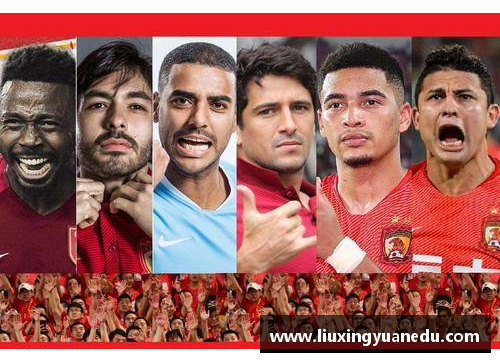归化球员政策:国际足坛的新挑战及其影响
Certainly! Here's a structured 3000-word article on the topic of "Naturalization of Players Policy: New Challenges and Impacts in International Football."
**Abstract:**
2121非凡体育官网In the ever-evolving landscape of international football, the policy of naturalizing players has emerged as a pivotal issue. This article explores the multifaceted dimensions of naturalization policies, examining their implications on national teams, player identities, global football dynamics, and the socio-political ramifications. By delving into these aspects, the article aims to provide a comprehensive understanding of how naturalization policies are reshaping the contours of international football.
**1、Emergence of Naturalization Policies**
Naturalization policies have become a focal point in international football governance, influencing team compositions, competitive dynamics, and national identities alike. The trend towards naturalizing players from diverse backgrounds raises questions about sporting integrity, identity politics, and the pursuit of competitive advantage.
**1、Introduction of Naturalization Policies
**Naturalization policies in football have gained prominence as national teams seek to bolster their squads with talent from abroad. Initially designed to integrate immigrants and refugees into national life, these policies now extend to sports, aiming to enhance team competitiveness and reflect demographic shifts.
As countries face demographic changes and global migration trends, naturalization offers a pragmatic solution to strengthen football teams. However, this practice sparks debates over authenticity, as players may not have strong cultural or historical ties to the nation they represent.
Moreover, the introduction of naturalization policies introduces complexities in eligibility criteria and ethical considerations, challenging traditional notions of national identity in football.
**2、Impact on National Team Dynamics
**The impact of naturalized players on national team dynamics is profound, influencing team chemistry, leadership structures, and tactical strategies.
Naturalized players often bring diverse playing styles and experiences, enriching team dynamics and enhancing tactical versatility. This diversity can strengthen team cohesion but may also disrupt established hierarchies and cultural norms within the squad.
Furthermore, the integration of naturalized players prompts discussions on inclusivity and representation, reflecting broader societal debates on multiculturalism and national belonging.
In essence, while naturalization policies can bolster competitive edge, they also necessitate careful management of team dynamics and cultural integration.
**2、Ethical and Identity Considerations**
The ethical dimensions of naturalization policies in football extend beyond sporting regulations, intersecting with issues of national identity, cultural representation, and equitable opportunities for homegrown talent.
**1、Ethical Implications
**The ethical implications of naturalization policies revolve around fairness, transparency, and integrity in player selection processes.
There are concerns that naturalization could undermine the development of local talent, creating barriers for young players striving to represent their national teams. This raises questions about the balance between nurturing domestic talent and leveraging global expertise.
Additionally, the perception of national teams as authentic representations of national identity is challenged when significant portions of the squad are naturalized players. This challenges football's role as a cultural ambassador and a mirror of national identity.
**2、Identity Politics and Fan Sentiments
**Naturalization policies provoke varied reactions among fans, shaping narratives around national pride, cultural diversity, and sporting success.
For some supporters, naturalized players symbolize inclusivity and global connectedness, enhancing national teams' appeal and international competitiveness. Conversely, others view these policies as diluting national identity and prioritizing short-term success over long-term cultural sustainability.
Fan sentiments towards naturalized players often mirror broader societal attitudes towards immigration, multiculturalism, and globalization, influencing football's socio-political discourse.
**3、Global Football Dynamics**
Naturalization policies exert ripple effects across global football dynamics, impacting transfer markets, youth development strategies, and international tournament competitiveness.
**1、Impact on Transfer Markets
**The influx of naturalized players can reshape transfer markets, as clubs seek to acquire internationally experienced talents capable of immediate impact.
This trend alters scouting priorities and recruitment strategies, favoring players with diverse international experience and proven adaptability to different footballing cultures.
Moreover, naturalization policies incentivize clubs to invest in youth development programs that cater to international talent, fostering a more cosmopolitan approach to player recruitment.
**2、Youth Development and Long-term Strategies
**Naturalization policies pose challenges to youth development structures, potentially redirecting resources towards recruiting naturalized talents over nurturing homegrown prospects.
There is a risk that reliance on naturalized players could diminish incentives for developing local talent, compromising the sustainability of national footballing ecosystems.
Conversely, strategic integration of naturalized players into youth development pathways can enrich grassroots programs, fostering cultural exchange and technical expertise among young players.
**3、Competitive Balance in International Tournaments
**The impact of naturalization policies on competitive balance in international tournaments is a subject of ongoing debate among football stakeholders.
While naturalized players can elevate teams' competitive prowess and broaden tournament narratives, concerns arise regarding fairness and parity among participating nations.
This dynamic underscores the need for regulatory frameworks that uphold sporting integrity while accommodating diverse player backgrounds and national aspirations.
 **
**
4、Conclusion**
In conclusion, naturalization policies present both opportunities and challenges in international football, reshaping team compositions, cultural identities, and global football dynamics. As football continues to navigate the intersection of sport, society, and globalization, striking a balance between inclusivity and integrity remains paramount. By critically evaluating the impacts of naturalization policies, stakeholders can chart a path forward that celebrates diversity while safeguarding the essence of national and international football.
Overall, naturalization policies herald a new era in international football, where the definition of national identity and competitive advantage are continually redefined.
While controversies persist, the integration of naturalized players underscores football's role as a global unifier and a reflection of evolving societal norms.